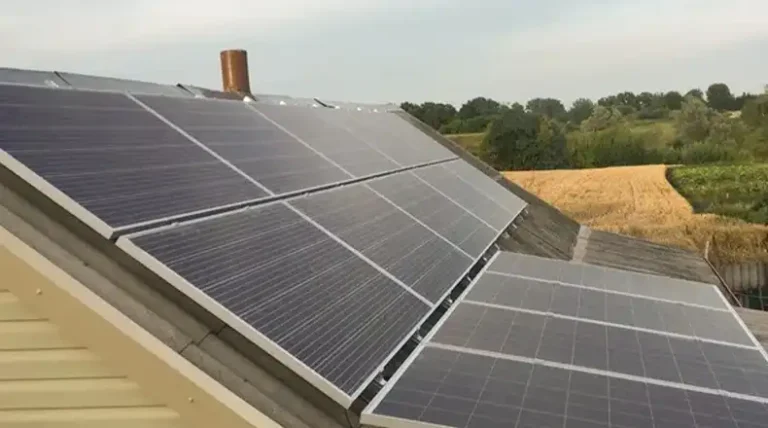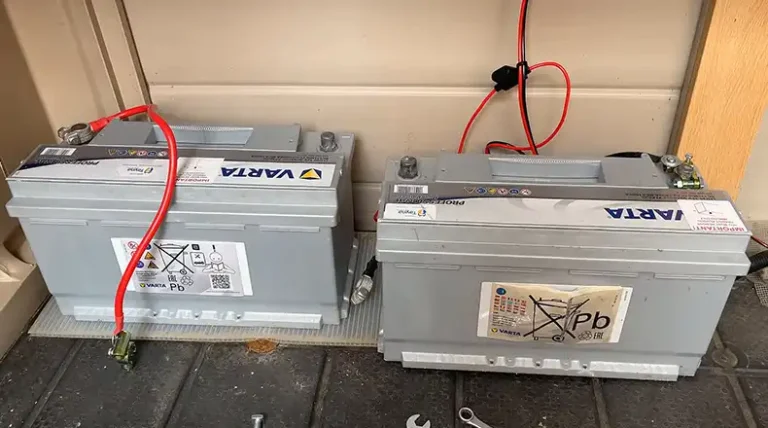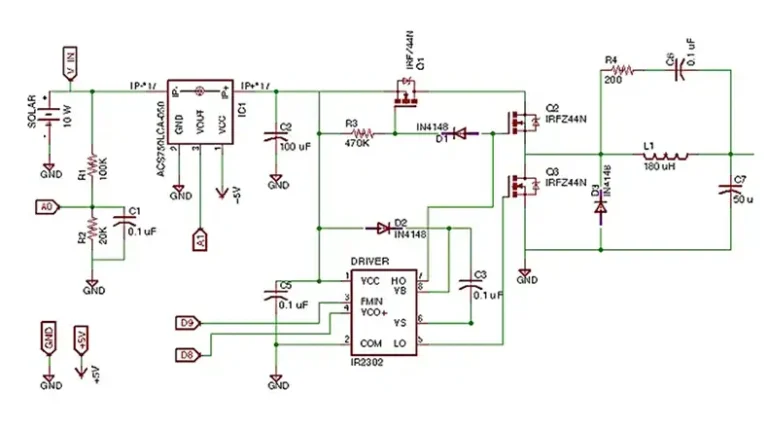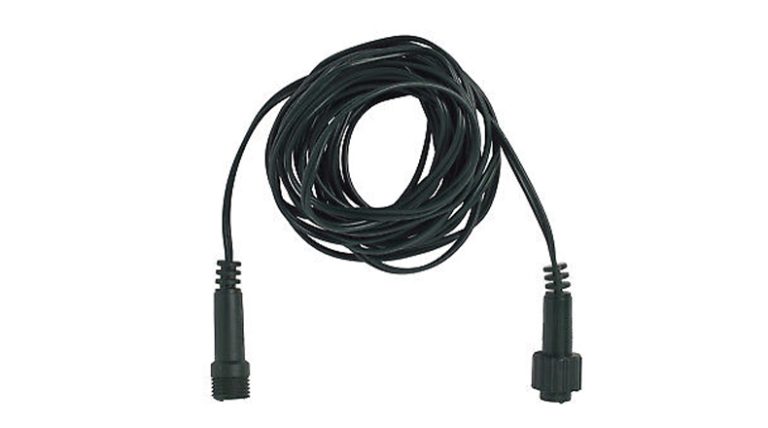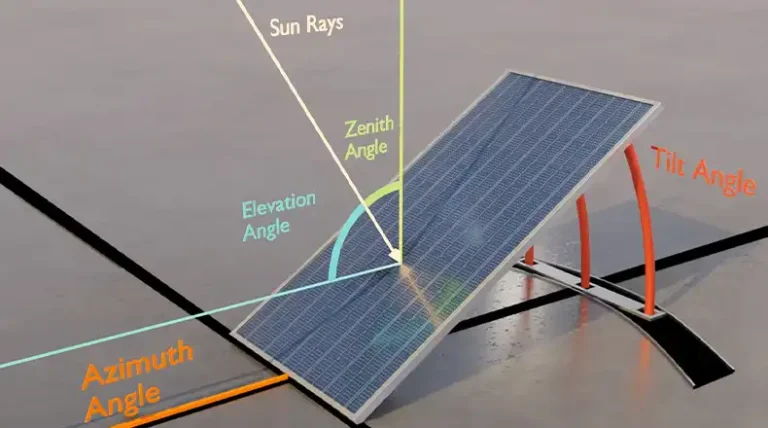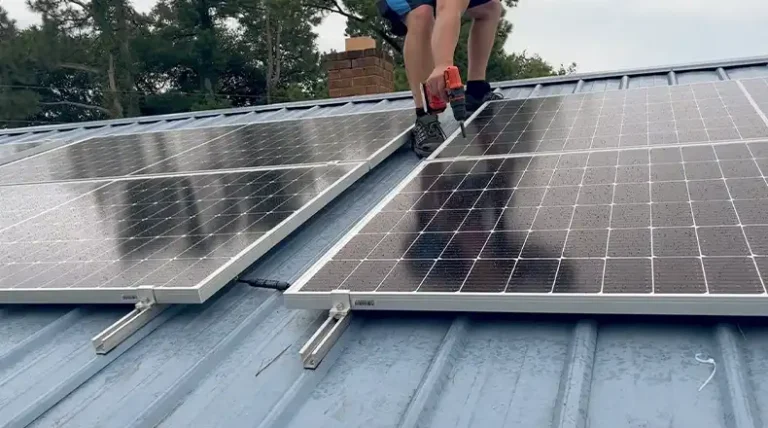Can You Charge a Solar Generator with a Gas Generator? Know the Fact
Solar generators are becoming increasingly popular as reliable and sustainable power sources, especially for off-grid uses like camping or emergency backup power. It is a great source of sustainable power source that’s for sure.
However, what happens when the sun hides? This raises an intriguing question: can you charge a solar generator with a gas generator? The answer, surprisingly, is yes, but with some essential caveats. Below, I will explain how solar generators work, how can you charge one with your gas generator and what are the pros and cons of doing so.
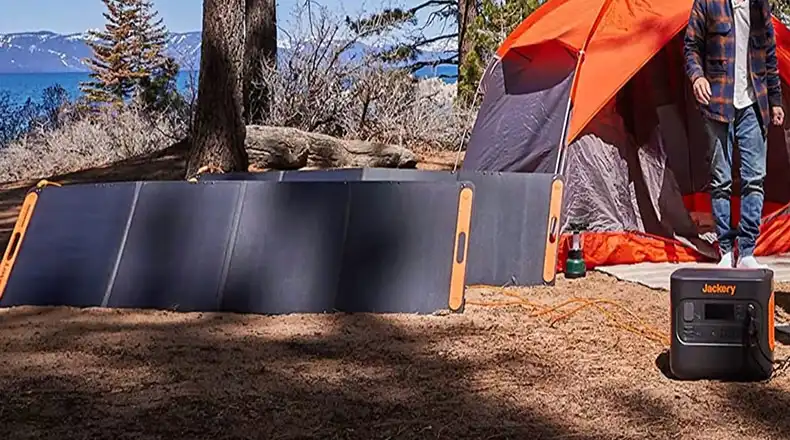
How do Solar and Gas Generators Work?
Solar generators use solar panels to convert sunlight into electricity, which charges batteries that can then provide power output. While solar generators are designed to be charged by the sun, there may be times when sunlight is limited and another charging source is needed.
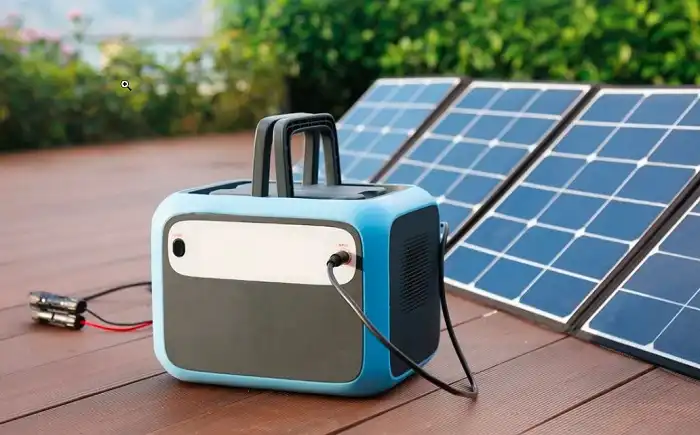
Gas generators work by burning gasoline or other fuels to run an engine that powers an electric generator. This generator produces AC (alternating current) electricity that can then be used to power appliances and devices when grid electricity is not available.
So, How Can You Charge a Solar Generator with a Gas Generator?
In theory, a gas generator’s electrical output could be used to charge the batteries of a solar generator. But how? To do this, you need an inverter, a device that converts AC to DC, allowing the gas generator to “fill” the solar generator’s battery.
Why Would You Charge Solar Generator With Gas Generator?
Before getting into how to do it, let’s discuss when you might or rather should consider doing this.
- Solar charging depends on sufficient sunlight, which isn’t always available depending on weather conditions and location. A gas generator provides a reliable power source when solar charging isn’t practical.
- Gas generators can provide a full recharge much more quickly than solar panels can, which is helpful when you need to get a depleted solar generator charged up fast.
- If a solar generator’s solar panels become damaged and cease to function, a gas generator offers an alternative charging method, especially for boondocking and off-grid living.
Pros and Cons
On the plus side, gas generators offer a way to rapidly repower solar generators when sunlight is scarce, providing near-continuous uptime. However, weighed against these benefits are considerable downsides. Gas generators undermine the clean energy advantages of solar power by burning fossil fuels and emitting pollution and noise. Fuel costs also add up over time. There are safety risks involved in improperly connecting generators.
So ultimately, while gas generators can technically charge solar generators, it is an imperfect shortcut that fails to utilize the intended benefits of sustainable solar power. Unless solar charging options have been fully exhausted, gas generators should be a last resort for powering green energy equipment.
How to Charge a Solar Generator with Propane Generators?
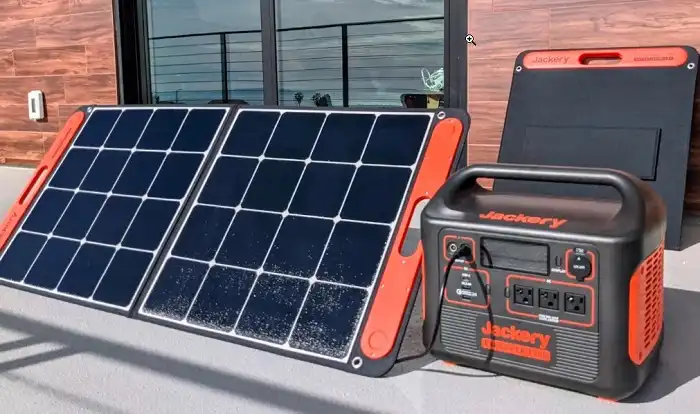
In order to charge a solar generator with a gas generator, there are a few key components you’ll need:
- A solar generator with charging ports that can accept electrical input. Many models have 12V DC charging ports.
- A gas generator with AC power output that matches the voltage and power needs of the solar generator. A 2,000 to 3,000-watt gas generator often works well.
- Appropriate charging cables or adapters to safely connect the gas generator output to the solar generator charging port(s).
How to Do It
- Ensure the gas generator and solar generator are compatible in terms of voltage, amperage, and connector types.
- Connect the charging cables securely between the gas generator’s AC output and the solar generator’s charging input port(s).
- Start up the gas generator according to its operating instructions.
- Turn on the solar generator and initiate charging mode.
- Monitor the charging progress and shut off the gas generator when fully charged.
Safety is critically important when connecting generators. Proper ventilation, surge protection, avoiding overloading or overheating either generator and fire prevention are essential. Only connect the generators outdoors in a well-ventilated area.
Charging Tips and Maintenance
Most solar generator batteries take between 10-20 hours to charge fully from a gas generator depending on their capacity. It’s important to monitor the charging process and stop when the battery is fully charged to prevent damage from overcharging.
While gas generator charging can be useful in certain situations, it’s best to rely primarily on solar charging when sunlight is adequate. Keep your solar panels clean and positioned optimally to maximize solar charging efficiency.
Both solar generators and gas generators require periodic maintenance like checking fluid levels and monitoring battery health to keep them functioning properly during charging and discharging.
Alternative Charging Options
While gas generators offer one option for charging solar generators without sunlight, there are a few other alternatives to consider:
- Solar banks with multiple panels can provide redundant solar charging.
- Small wind turbines can generate supplemental renewable electricity.
- Grid-tied solar systems with battery banks can provide seamless backup power.
- Portable power stations and banks provide additional charging capacity.
Frequently Asked Questions
Can any gas generator charge any solar generator?
No, compatibility is crucial. Ensure your gas generator’s voltage and charging rate match your solar generator’s requirements. Consult both manuals for recommended specifications.
Do I need a special inverter for this process?
Yes, using the wrong inverter can damage your solar generator. Invest in a high-quality inverter with the correct voltage and wattage output to handle the charging current safely. Look for grounded models for added safety.
What size gas generator do I need?
The size depends on your solar generator’s charging requirements and your typical power needs. Consider a generator wattage slightly higher than your solar generator’s charging needs, but avoid oversizing to prevent wastefulness.
Is charging with a gas generator bad for batteries?
While occasionally using a gas generator shouldn’t significantly harm your batteries, frequent reliance can shorten their lifespan due to inconsistent charging rates and higher voltage than direct solar charging.
How long will it take to charge my solar generator with a gas generator?
Charging time depends on the size of your generator and solar generator battery. A larger generator will charge faster, but remember to match charging rates for efficiency.

